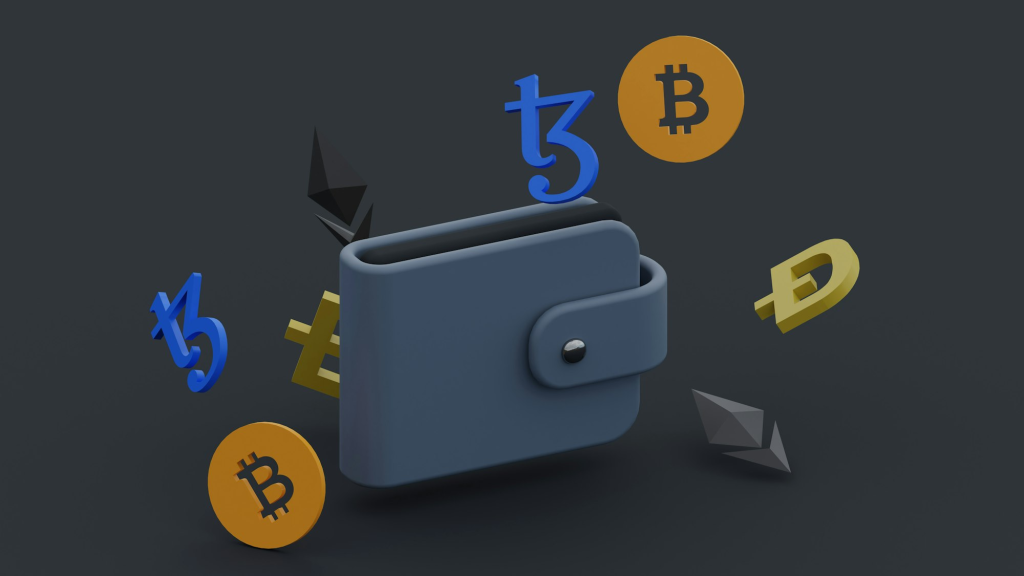Cryptocurrencies have become a staple of the digital economy, offering users a decentralized and secure way to manage financial transactions. At the core of cryptocurrency management is the crypto wallet—a digital tool that stores the private keys necessary to access your crypto holdings. With an array of wallet options available, choosing the right one can feel overwhelming, especially when each wallet offers unique features tailored to different user needs.

This guide will help you navigate the world of crypto wallets, detailing popular options, their features, and tips for ensuring the security of your assets.
Understanding Crypto Wallets
A cryptocurrency wallet serves as your key to interacting with the blockchain. While your assets are stored on the blockchain, the wallet manages your private and public keys, giving you control over your holdings. Private keys are the most crucial element of a wallet, as they grant access to your funds.
Wallets can be broadly categorized into two types: hot wallets (connected to the internet) and cold wallets (offline). Each has its pros and cons, depending on your priorities for accessibility, security, and functionality.
Popular Crypto Wallets
Ledger Nano X
The Ledger Nano X is a highly secure hardware wallet designed for users who prioritize safety. It supports over 5,500 cryptocurrencies and connects via Bluetooth, making it convenient for mobile use. The device features robust encryption, ensuring that your private keys are always protected. This wallet is ideal for long-term holders who want maximum security without compromising accessibility.
Trezor Model T
The Trezor Model T is another top-tier hardware wallet known for its intuitive touchscreen interface and open-source software. Supporting over 1,800 cryptocurrencies, it provides advanced security measures and seamless integration with third-party apps. Its transparent design allows users to verify the integrity of the wallet’s operations, making it a trusted choice for managing large crypto portfolios.
MetaMask
MetaMask is a browser-based wallet popular among Ethereum users. It provides easy access to decentralized applications (dApps) and supports tokens built on the Ethereum blockchain. Its user-friendly interface makes it ideal for beginners exploring decentralized finance (DeFi) and NFT marketplaces. With additional security layers like seed phrases, MetaMask ensures your assets remain protected.
Trust Wallet
Trust Wallet is a mobile-based hot wallet that supports a wide range of cryptocurrencies. It includes an integrated dApp browser, enabling users to interact directly with DeFi platforms. With a simple setup and secure encryption, Trust Wallet is perfect for beginners and those looking for an all-in-one solution for managing multiple crypto assets.
Coinbase Wallet
The Coinbase Wallet is a custodial option seamlessly integrated with the Coinbase exchange. It supports a wide array of cryptocurrencies and allows users to store NFTs. The wallet is designed with beginners in mind, offering features like insurance for breaches and an intuitive interface. This wallet is perfect for users new to crypto who want a straightforward and secure option.
Factors to Consider When Choosing a Wallet
- Purpose: Determine whether you need the wallet for frequent trading, long-term holding, or engaging with dApps. Hot wallets are better for active trading, while cold wallets are ideal for secure storage.
- Security: Look for features like two-factor authentication (2FA), biometric access, and strong encryption. Cold wallets offer the highest level of security by keeping your private keys offline.
- Supported Cryptocurrencies: Ensure the wallet supports the specific coins or tokens you plan to use. Multi-currency wallets like Ledger Nano X and Trust Wallet are excellent for diverse portfolios.
- Ease of Use: Beginners should prioritize wallets with intuitive interfaces and clear setup instructions. Custodial wallets like Coinbase Wallet simplify crypto management but require trust in the platform’s security.
- Cost: Hot wallets are usually free, while cold wallets like Ledger or Trezor require an upfront investment. Consider your budget and the value of the crypto you plan to store when making a decision.
Tips for Securing Your Crypto Wallet
- Enable Two-Factor Authentication (2FA): Add an extra layer of security to prevent unauthorized access.
- Backup Private Keys: Store your keys and recovery phrases in a secure offline location.
- Avoid Phishing Scams: Always verify website links and avoid sharing private information with untrusted sources.
- Regular Updates: Keep your wallet software up-to-date to protect against vulnerabilities.

Final Thoughts
Choosing the right crypto wallet is a vital step in managing your digital assets securely. Whether you’re a beginner or a seasoned investor, understanding your needs—such as trading frequency, desired security level, and supported cryptocurrencies—will help you make an informed decision. You can also check our related topics on:-
- Litecoin Mining- Learn How To Do It?
- Ripple mining- How to Mine Ripple?
- How Cryptocurrency Is Changing the Whole Banking System
- How to Spot Crypto Scams and Protect Your Investments
Wallets like Ledger Nano X and Trezor Model T offer top-notch security for long-term holders, while MetaMask and Trust Wallet cater to users exploring DeFi and dApps. Regardless of your choice, implementing strong security practices will ensure your crypto investments remain safe and accessible. As the cryptocurrency ecosystem evolves, staying informed and vigilant about wallet options and security will empower you to navigate this dynamic space confidently.







